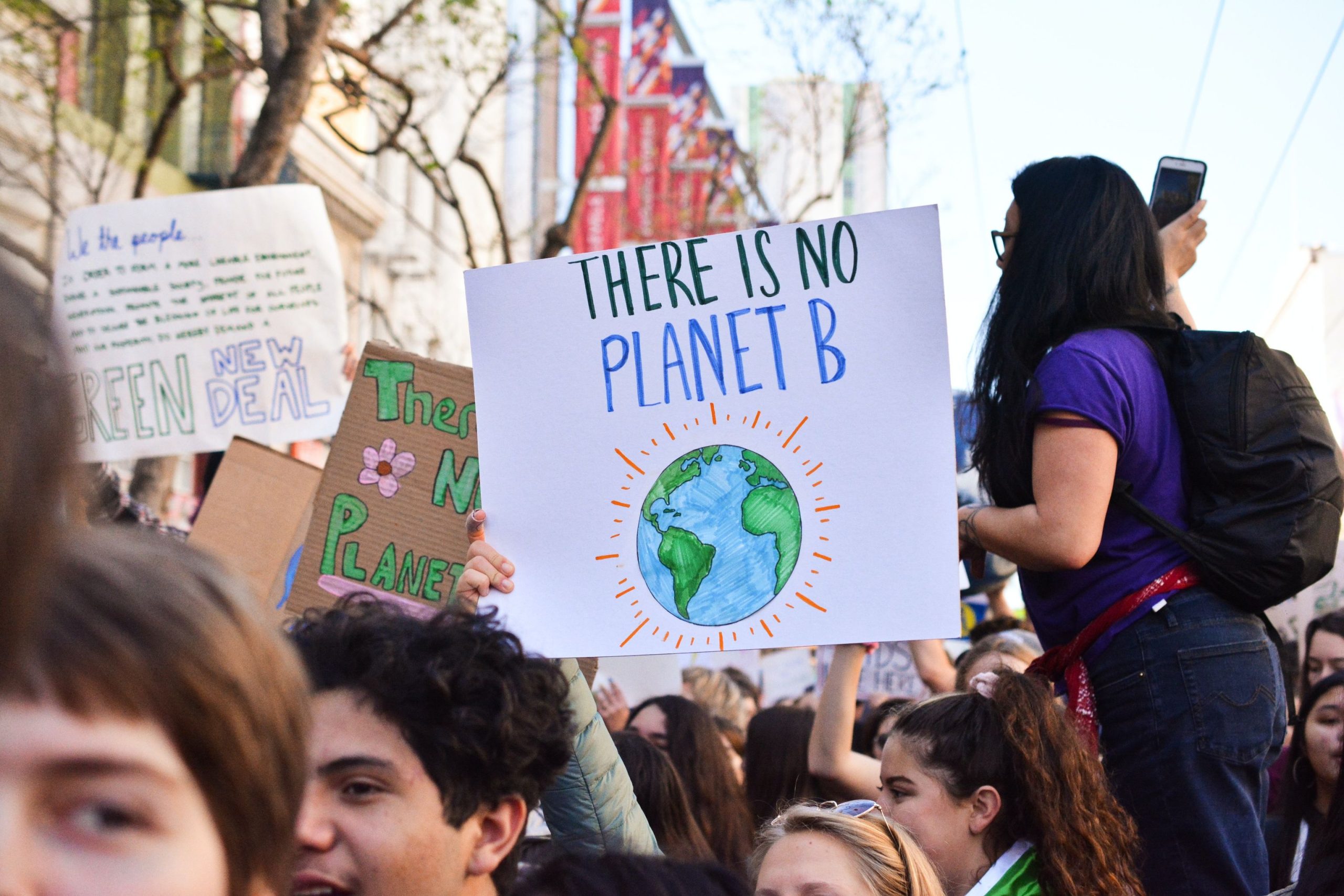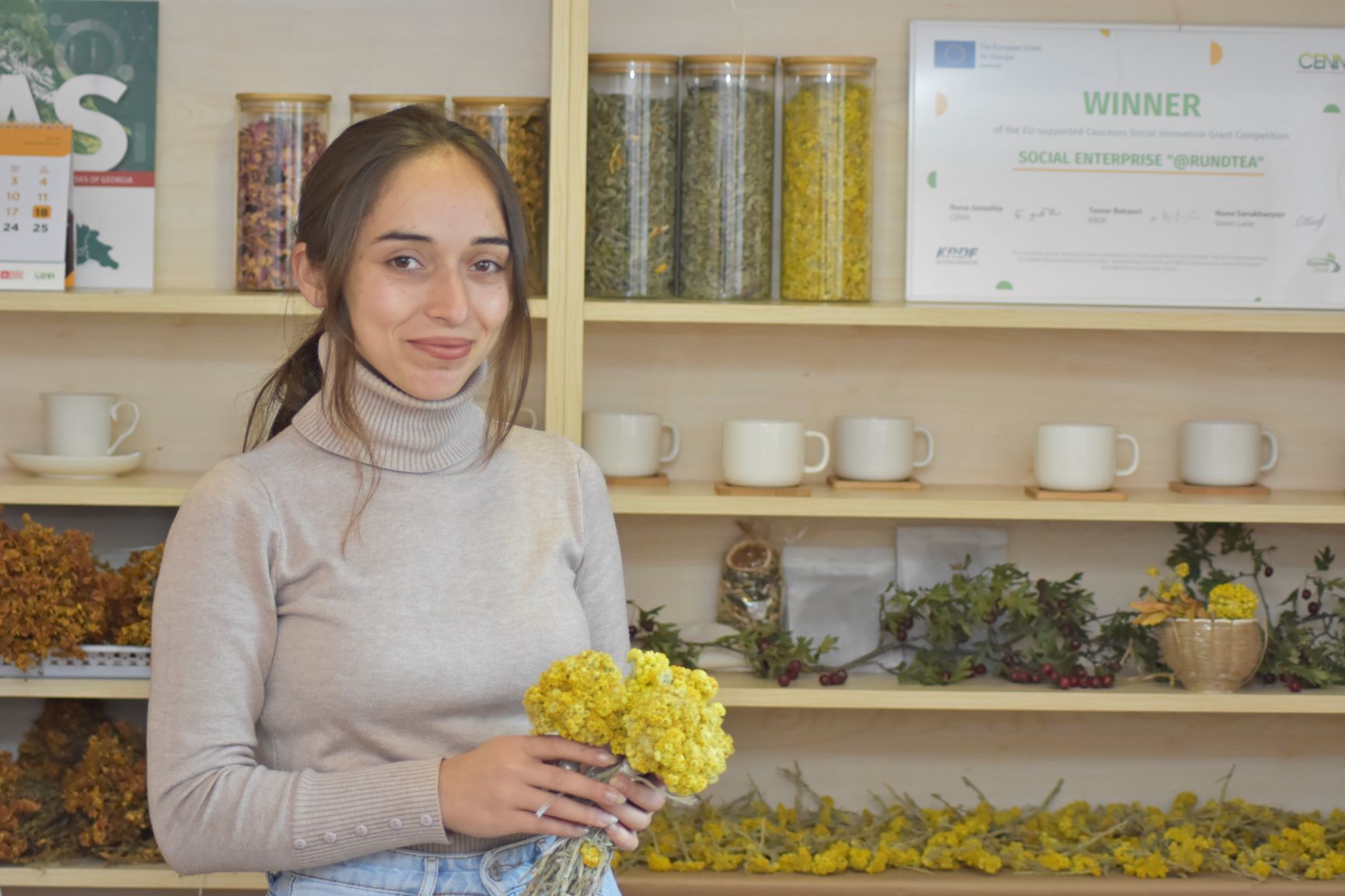How the hopes of students from Gori turned into green businesses with the help of the EU and CENN
How the EU and CENN help schoolchildren
A 12-year-old ceramic artist, garden seeds in greeting cards, and an eco-friendly cardboard puppet theater for use in schools – this article is about innovative green businesses started by students with the support of the EU and CENN.
Plant Emotion — soon under this name you will be able to buy handmade greeting cards in Gori. The cards are made from recycled paper and have planting seeds embedded inside.
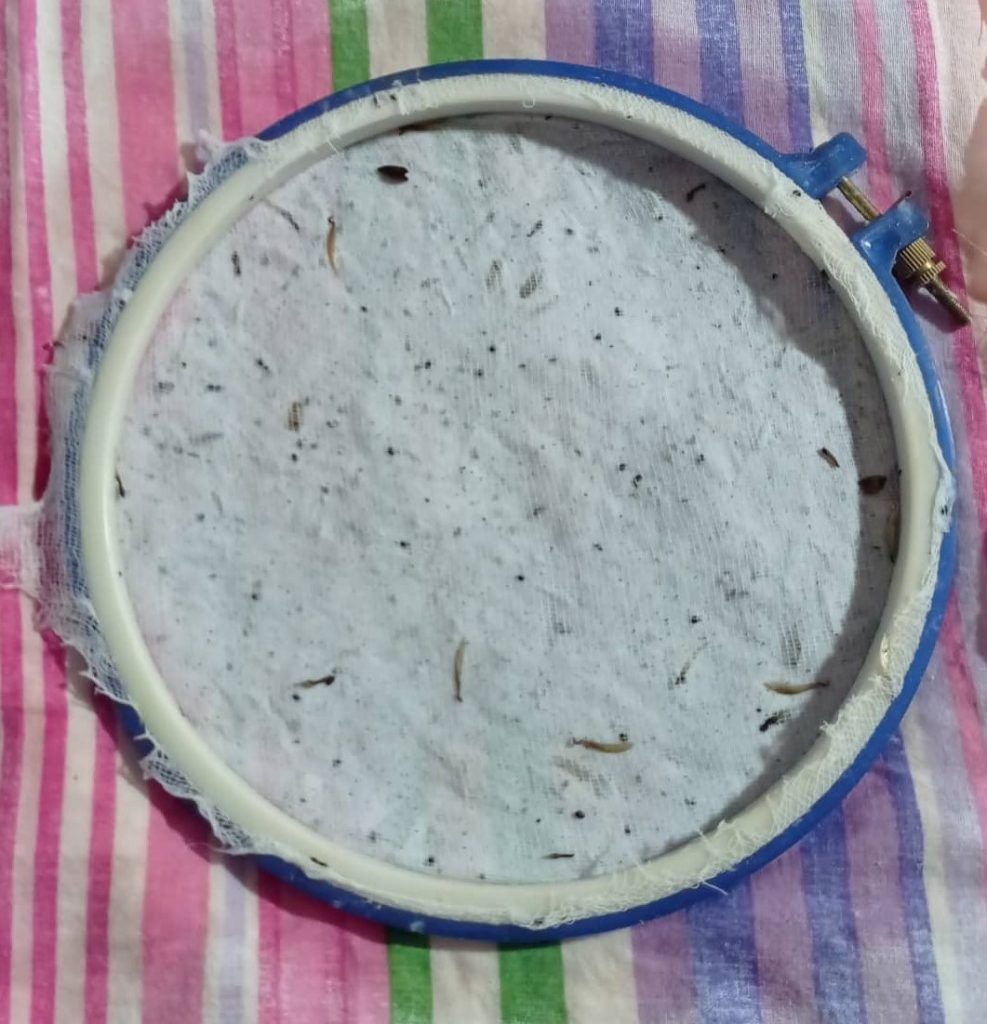
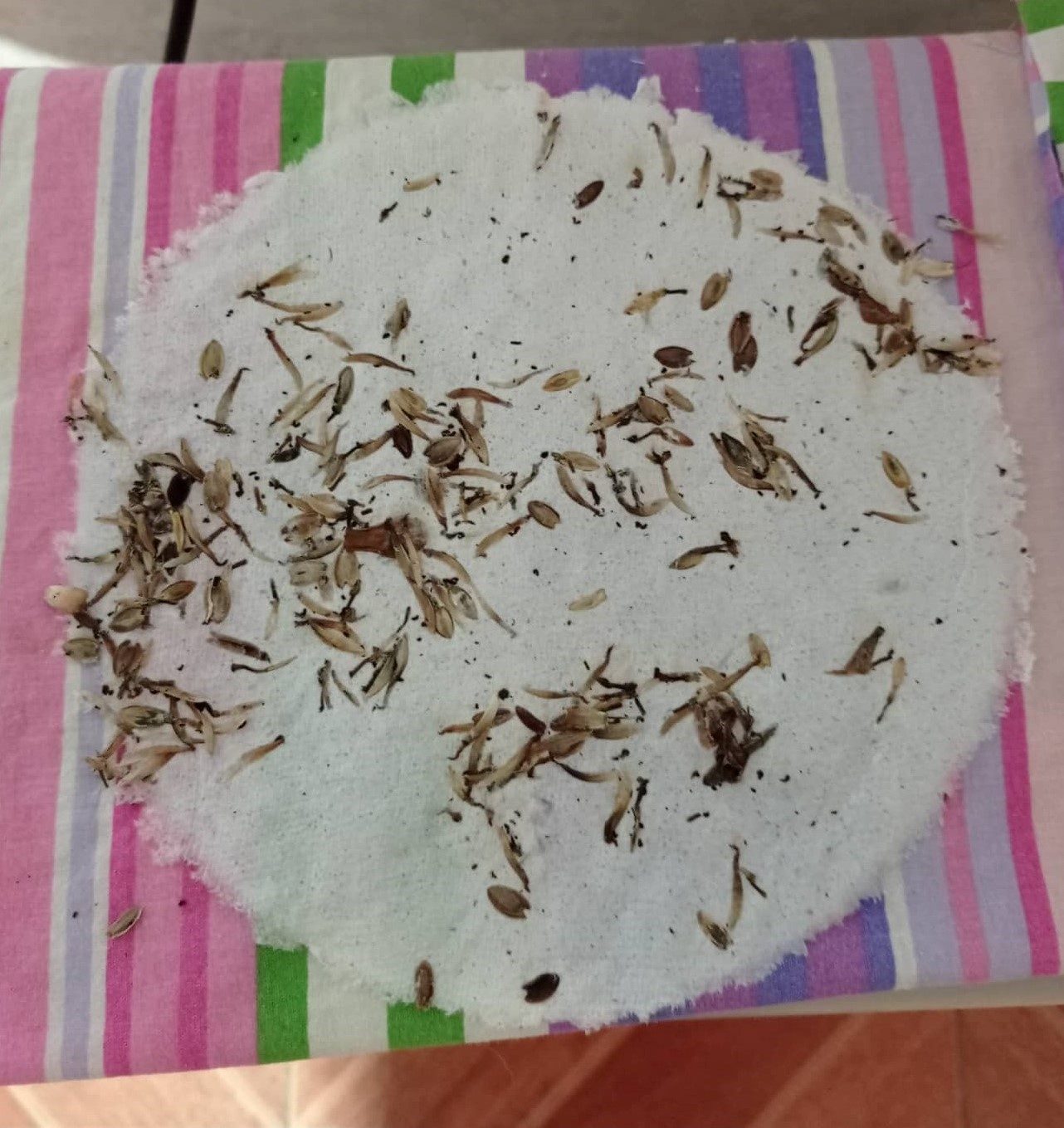
The idea of eco-friendly greeting cards belongs to three students from Gori Public School No.8 — Sofo Tsertsvadze, Nikoloz Midelashvili and Mariam Aleksidze.
A new life for used paper
Sophie and her friends learned from their teacher that CENN had announced a green and social entrepreneurship “idea-athon” for schools in Gori municipality, so they decided to participate.
“We were interested in social entrepreneurship and ecology. We are worried that there is a lack of greenery around us. This is where the idea of planting trees came from. To start with, we wanted to make our school green and more beauty”, Sofo tells us.
To participate in the contest, they first presented the idea of planting trees. Then for a week they listened to lectures on entrepreneurship and environmental issues and, at the same time, thought about how to turn their hope into a business idea:
“In the beginning we thought that our idea fit the goals of the project. However, as we learned more about social entrepreneurship, we realized we were missing something. We decided to come up with a more interesting and clever marketing idea. But we didn’t stray too far from our original idea.”
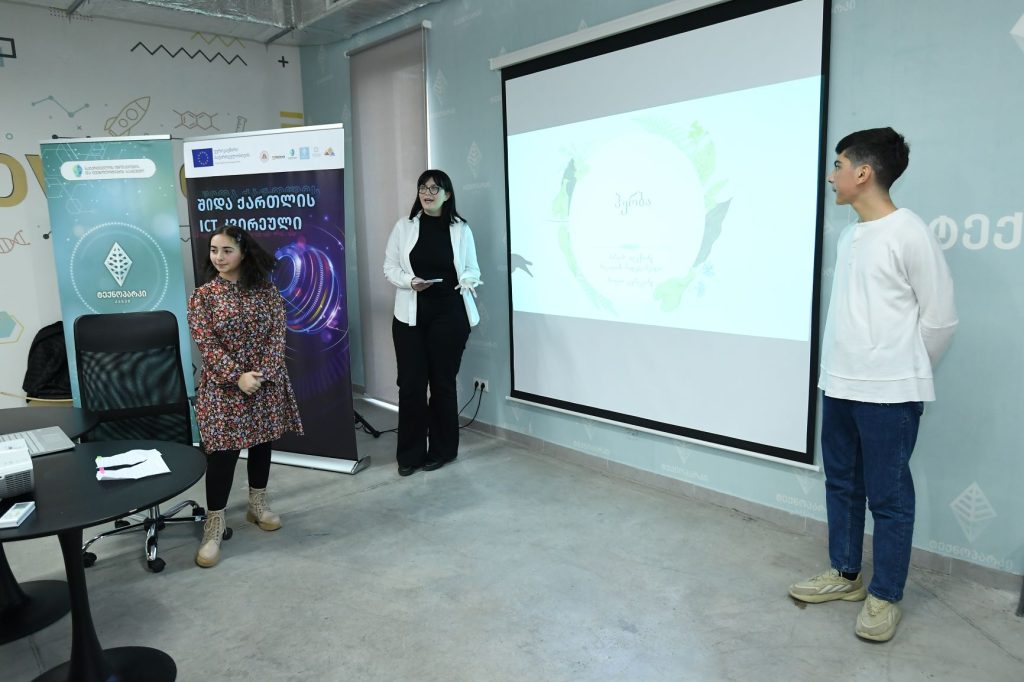
The idea came when they were filling out a worksheet in the Kaspi Technopark:
“I remembered that we could recycle paper at home. It’s a fun process and we love doing it. We shred waste paper, soak it in water and blend it. Then we take this mass in various forms and dry it. We decorated the paper with natural paints and flower petals, and so now we would add flower seeds as well.”
They refined the idea, drew up a budget, made an eco-friendly greeting card sample and presented it to the jury, which financed their green business idea with 800 GEL.
The young entrepreneurs are now collecting waste paper, stocking up on plant seeds, and will start work soon. They have already found several flower and stationery shops in Gori where they will sell their cards.
“We are going to aim outside Gori and sell our cards all over Georgia. I’m glad that we were given the opportunity to turn our volunteer work at home into a source of income,” Sofo says.
“Idea-athon” of green and social entrepreneurship for students of Gori
“Turning challenge into opportunity” is a contest organized by CENN and supported by the European Union for students in Gori to generate ideas in social and green entrepreneurship. The goal of the project is to solve the social and environmental problems of Georgia in an entrepreneurial way.
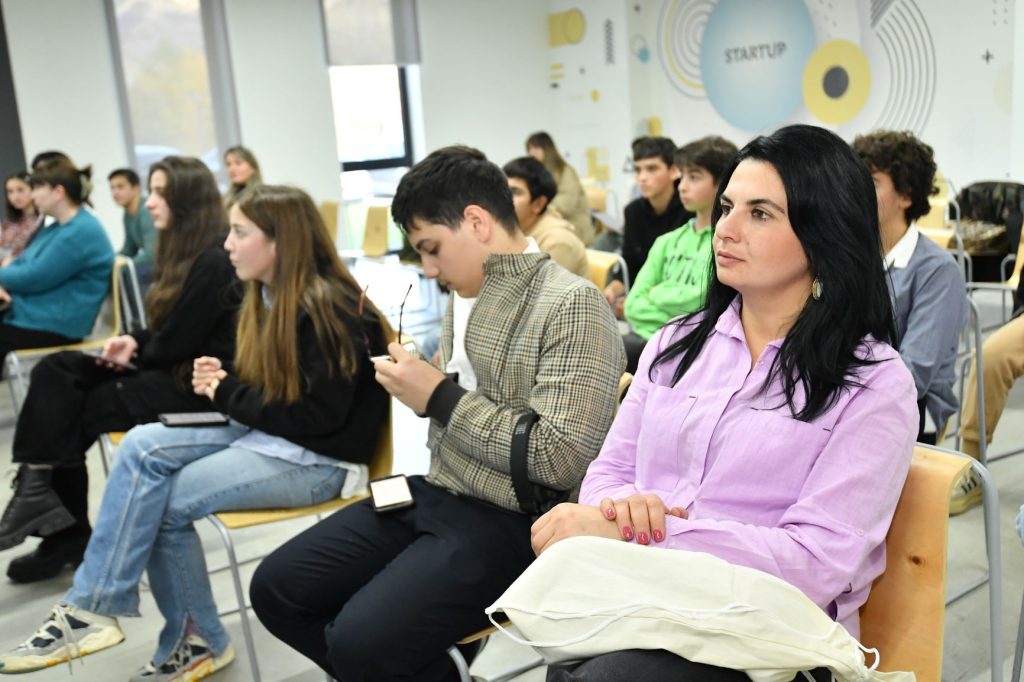
For the third year now CENN has undertaken the EU4Youth: Social Entrepreneurship Ecosystem Development (SEED) for Green Growth in Cross-Border Regions project supported by the European Union.
Students from ten schools of Gori participated in the “idea-athon”.
“The young people were given intensive training for a week at the CENN hub in Gori. They learned what circular economy, green business, social entrepreneurship, innovations in business are, how to write and present a business plan, etc.,” local CENN coordinator Irma Kitriashvili told ys.
After training the students presented their business models to the jury. The winning teams were awarded with 1000, 800 and 600 GEL.
Irma Kitriashvili says that every business that has been financed should be profitable and sustainable.
12-year-old ceramic master
The youngest participant, 12-year-old Giviko Abalak, won first place. Giviko and his older sisters have been learning to work with clay in Giorgi Tatulashvili’s workshop in Gori for three years.
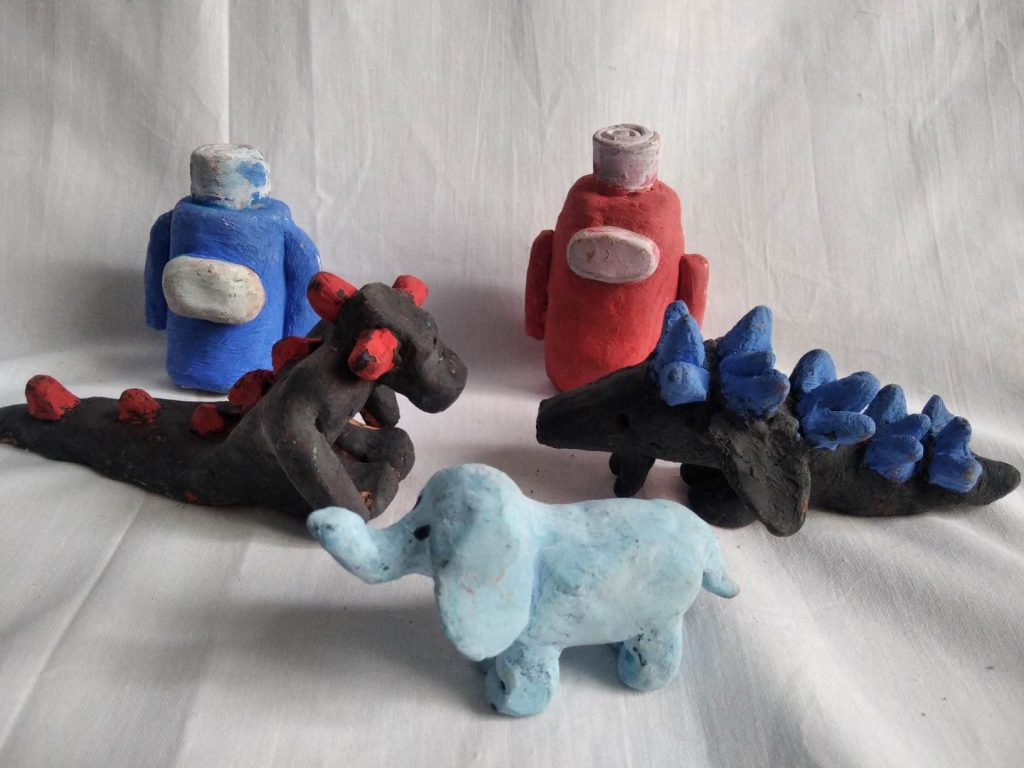
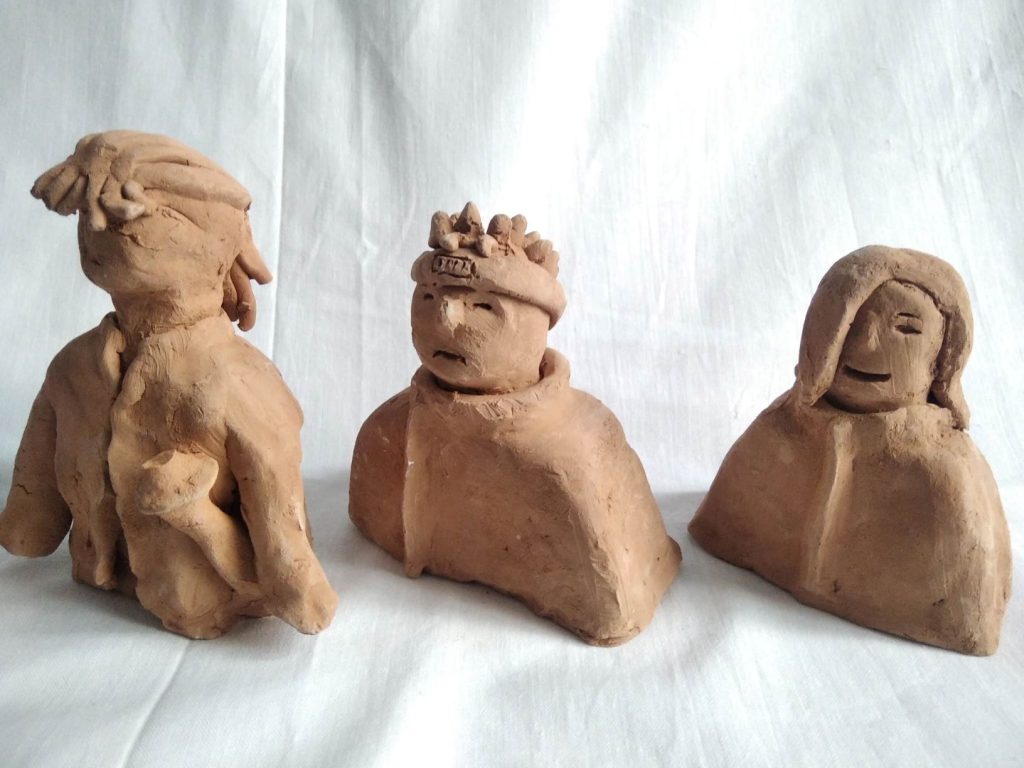
“I really like working with clay, it’s a fun process, but it takes a lot of time. It takes me an hour and a half to shape one beautiful pot,” he tells us with great enthusiasm and explains the process: “Then I work it by hand, give it shape and make decorations with the help of tools. After a month of drying, you bake the pot in the oven and it is ready“.
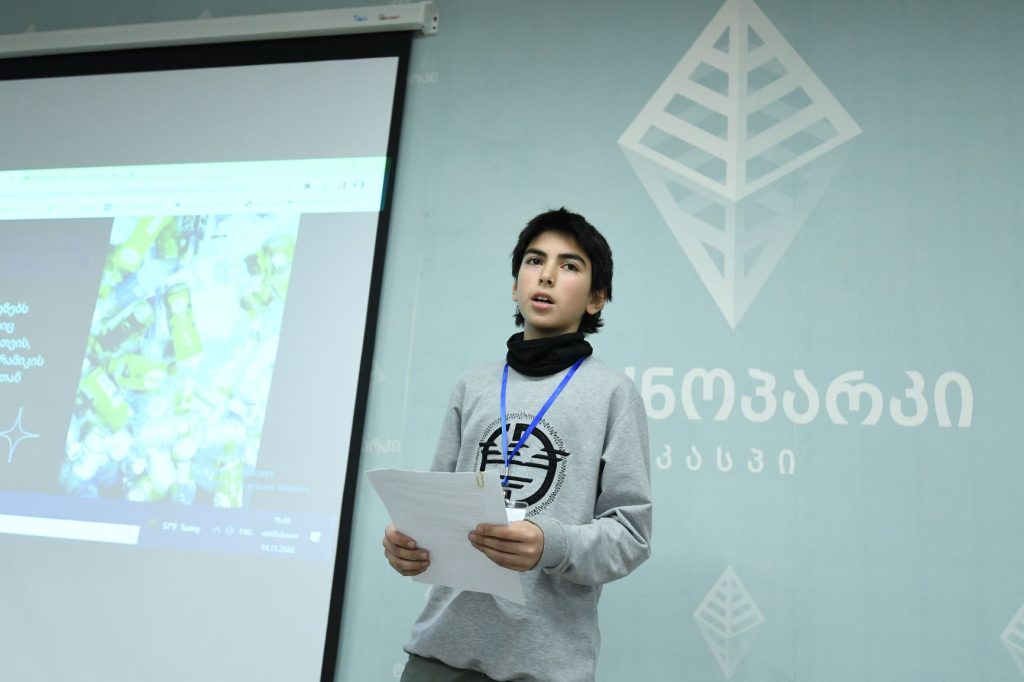
Until now, he had taken his works to exhibitions and sales. He also exhibited his works on “Gori Day”. He says that children liked the ceramic elephant, dog and other toys, while the adults were more interested in the jugs and pots.
“For a long time I wanted to have my own small business, but I had no money. At CENN trainings I learned what green business is, and it helped me become a business owner,” Giviko tells us.
- Biodegradable napkins from Ninotsminda – How a 30-year-old woman manages a family business
- How 22-year-old Abram’s love for Tusheti turned him into a social entrepreneur
- Clean and accessible water for more than 500 families – EU, CENN and self-government for water safety in rural areas
Clay is environmentally friendly, versatile and reusable, so Giviko decided to present the idea of a ceramics workshop to the jury. His idea was both to promote Georgian pottery and replace plastic with environmentally friendly, reusable items.
With the financial support of CENN, Giviko is now preparing to open a small business at home. He has ordered a clay kiln, supplies and tools, and will start working soon.
He plans to teach his peers how to work with clay in his workshop and employ them when he expands.
Eco-friendly puppet theater for non-formal education
The experience gained within the “idea-athon” of green and social entrepreneurship helped 13-year-old Lika Davitashvili and 14-year-old Maiko Gelenidze turn what they started at school into a business idea.
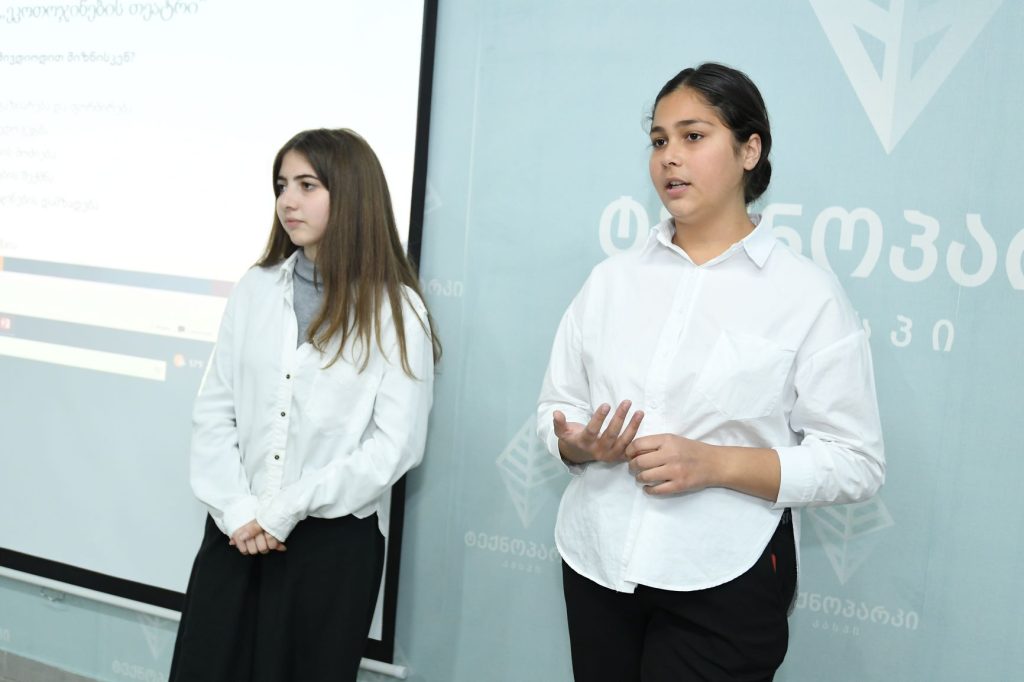
The senior students of Khidistavi public school have been cutting, painting, coloring dolls from cardboard paper and performing for elementary school students on a stage made of cardboard boxes for two years now.
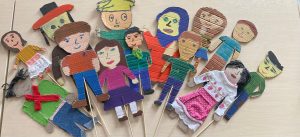
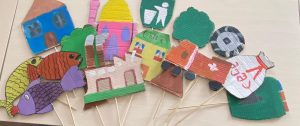
The idea is to share knowledge and raise awareness among students on important issues in an informal way.
“We sometimes stage plays about bullying, early marriage, child labor, environmental protection and other problems around us,” Lika Davitashvili tells us.
She says that children are especially interested in environmental topics and recalls a presentation on water pollution:
“They liked it so much that we also staged a play on this topic. It was called “the problem of water inhabitants”. We wrote a script about fish who were worried about the pollution of the water with oil and garbage. And the children, in the end, were able to help and save them.”
They often write the scripts themselves, and sometimes they are helped by Mimosa Golijashvili, the teacher of “Citizenship”. He is the main inspiration of the cardboard puppet theater.
With the support of teachers and experience gained in the “idea-athon”, Lika and Maiko adapted the idea of an eco-friendly puppet theater to the goals of the project and turned it into a business project.
They decided to sew the dolls from scraps instead of cardboard because fabric is more durable. They also have another idea — in parallel with their stories, they want to promote Georgian fairy tales and bring the heroes known to everyone to life on stage.
The students of Khidistavi School are planning to go bigger and introduce their eco-friendly puppet theater to other audiences.
“With the funding we have to buy pieces and a movable stage. We want to be able to visit other schools and do our show there,” Lika tells us.
Some of the scripts have been written, the roles have been distributed, the rehearsals have been held, and soon they will bring their characters to life on a new stage with cloth dolls.
How the EU and CENN help schoolchildren










